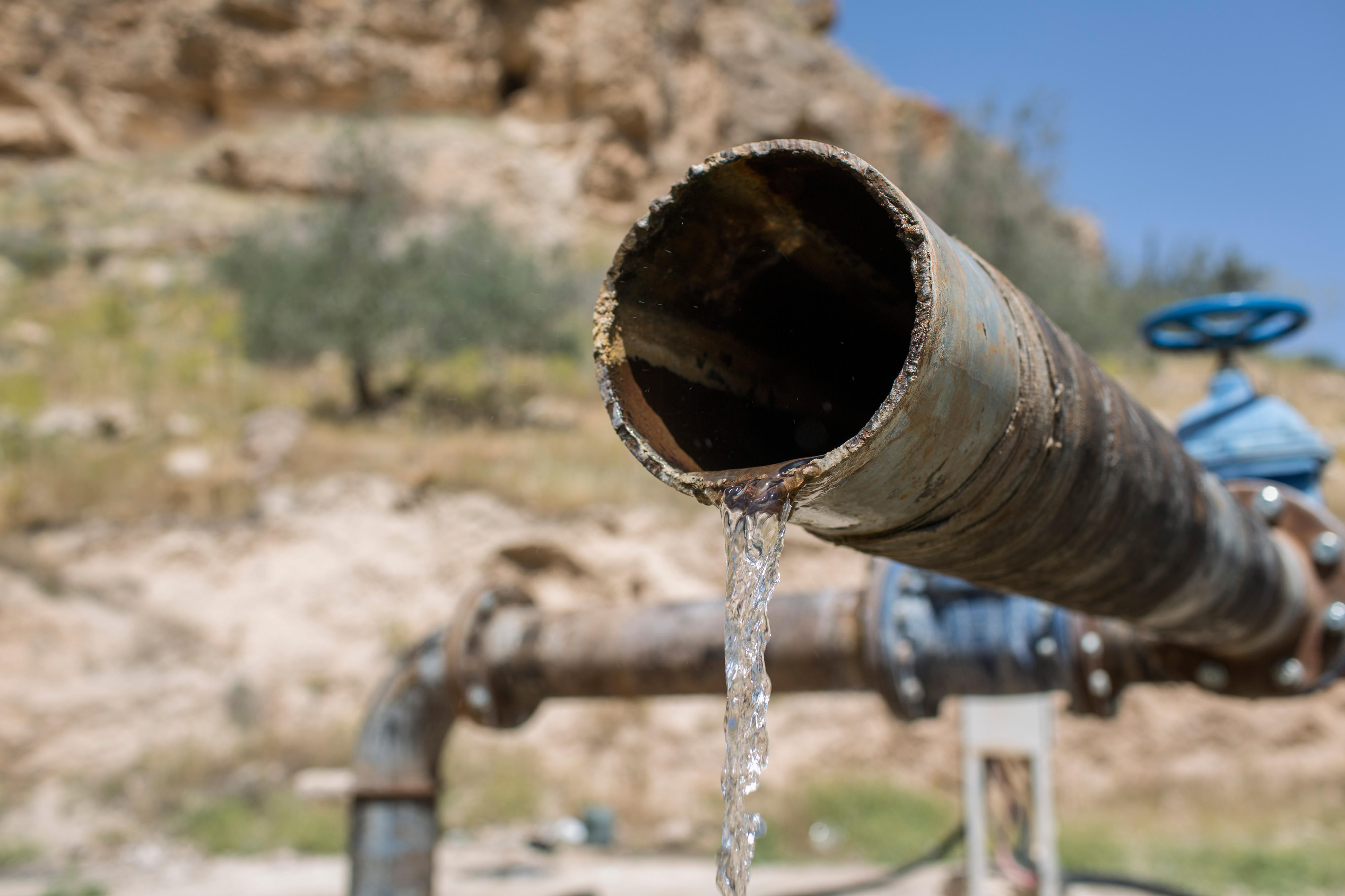Water pipe in Jordan
Copyright© Thomas Imo/photothek.net
International water policy: need for increased efforts
Water plays an important role in the 2030 Agenda. Achieving the water-related goal (SDG 6) is connected with many of the other goals, for instance the SDGs on food, health, education, climate, and energy, but also those on gender equality and peace and security.
However, United Nations reviews have shown that the international community will fall far short of reaching SDG 6 unless it undertakes additional efforts. In order to achieve universal access to water and sanitation by 2030, efforts on drinking water would need to increase sixfold and on sanitation, fivefold.
Germany's development policy is based on a commitment to human rights. Access to safe water and to washing and sanitation facilities is a fundamental aspect of human dignity. That is why the German Development Ministry (BMZ) is assisting its partner countries in developing pro-poor water policies and implementing reforms in the water and sanitation sector. This includes higher public investment, better financing models for mobilising private investment, and the introduction of socially equitable, cost-covering water tariffs.
Efforts under the umbrella of the United Nations
Responsibility for SDG 6 does not lie with one single UN agency. Rather, many different agencies (including WHO, UNICEF, UNHCR and UN-Habitat) share this responsibility, each being responsible for specific targets. This is making coordinated political action more difficult. UN-Water (External link) was established in order to provide a coordinating platform. However, this mechanism has so far not been given the level of human and financial resources that it needs for its work.
In order to generate more attention for the topic worldwide, Germany is working with other donors to give UN-Water a stronger political role. The German government also supports the United Nations System-wide Strategy for Water and Sanitation (External link), which addresses all UN agencies that are active in this field, and the ambitious Collaborative Implementation Plan for the Strategy.
In 2023, the UN published its Global Sustainable Development Report (External link) (GSDR) and the SDG 6 Synthesis Report on Water and Sanitation (External link). Both reports show that the world is significantly off track to achieve the water-related targets of the 2030 Agenda's Sustainable Development Goals. The reports highlight interactions between individual SDGs, identify what factors could drive or hinder progress, and provide recommendations for improvements in the water and sanitation sector.
UN Water Action Decade and 2023 Water Conference
In 2016, the United Nations General Assembly declared 2018-2028 the International Decade for Action on “Water for Sustainable Development”. The Decade is intended to increase public awareness of the topic and foster sustainable development and integrated water resources management.
In March 2023, an international Water Conference (External link) was held in New York at the midpoint of the Water Action Decade. This was the first UN conference since 1977 to be devoted entirely to water. Governments, international organisations and representatives of civil society and the private sector came together to decide on a change of course and accelerate progress on achieving the water-related targets of the 2030 Agenda.
Both before and during the conference, the German government provided special support to facilitate the participation of scientists and other non-governmental actors. The main outcomes of the conference include commitments made by governments and interest groups to contribute to the accelerated implementation of SDG 6 through new approaches and ideas. The next UN Water Conference is to be held in 2026.
German commitments
Germany submitted a total of ten commitments at the Water Conference. In 2023, it adopted its first national water strategy. The commitments include five made by the BMZ, in line with the priorities of Germany's development policy (feminist development policy, poverty and hunger, Just Transition, global health und bodily autonomy).
Among other things, the BMZ joined forces with the Netherlands and the European Union to launch the Urban Water Catalyst Initiative (External link) (UWCI). Its purpose is to improve drinking water and sanitation services in the growing cities of the Global South. The Initiative focuses on the transfer of knowledge and the development of long-term partnerships between water and wastewater utilities in the Global North and the Global South. Germany has provided 32 million euros to get the endeavour started.
As at: 13/06/2024

